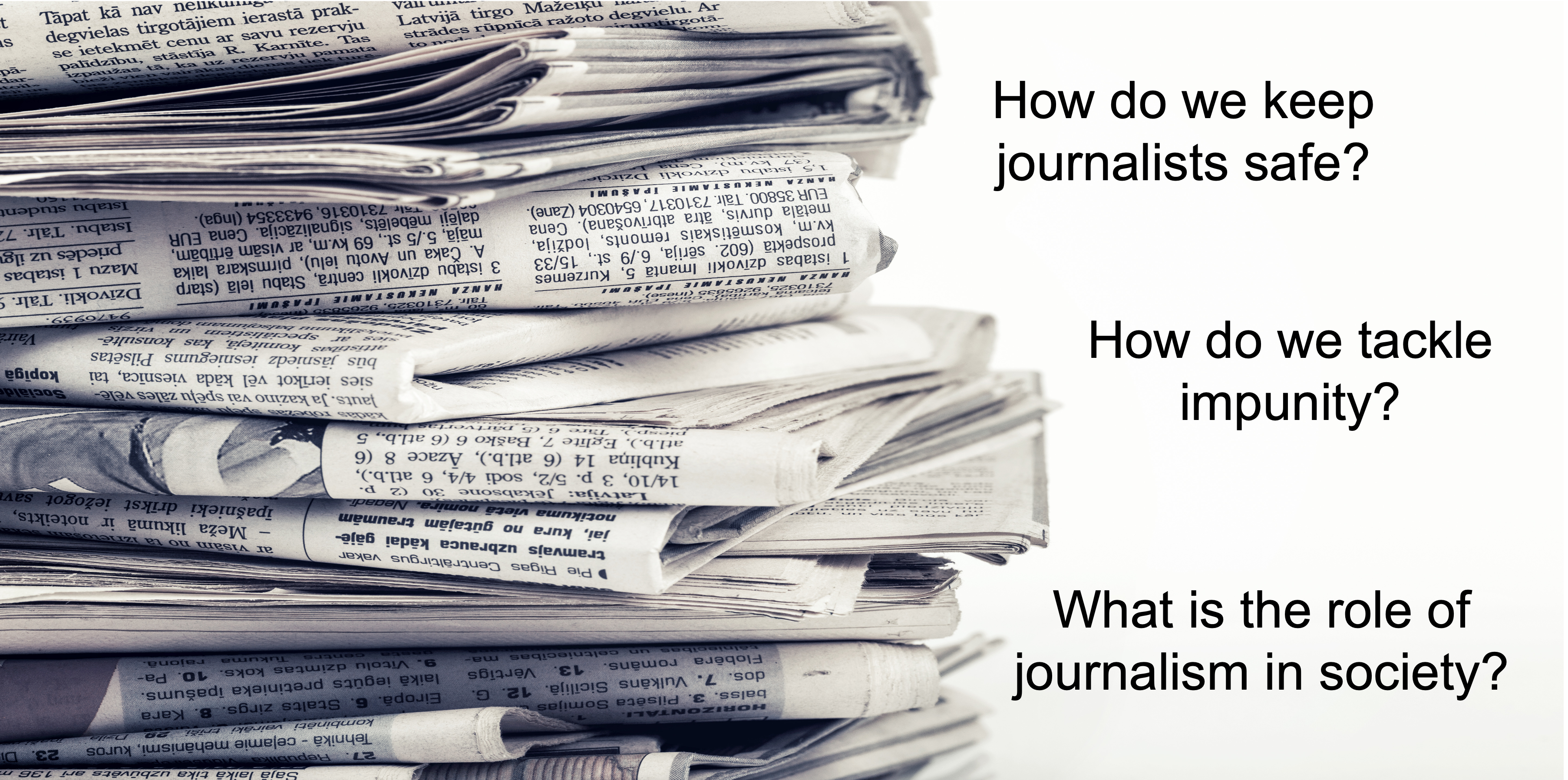
The diminishment of media freedom through a range of diverse threats undermines the civil role of the factual mass media. Threats range from subtle and often reasonable sounding constraints on journalism practice and freedom of expression such as journalists pandering to partisan views or adhering to commercially inspired imperatives to the creation of spaces of exception where journalists are denied their rights both as citizens and as journalists casting them simultaneously within and beyond the legal order, to the use of brutality and murder to silence them.
All of these threats can force journalists to adopt forms of self-censorship and lead to restrictions being placed upon the freedom to practice independent news journalism. The worldwide decline in the safety of news journalism and news journalists is of increasing concern to policymakers and researchers. CFOM works with civil society groups and through joint research aims to develop mechanisms for prevention of, protection against and prosecution of violence against journalists.
Through its research projects CFOM contributes to knowledge and awareness raising about the value of a free and safe environment for journalists and media workers in both conflict and non-conflict situations. CFOM has a track record of input into UNESCO’s Information and Communication sector’s priorities and its UN Action Plan on the Safety of Journalists and the Issue of Impunity. CFOM also hosts the Journalism Safety Research Network (JSRN) with the support of UNESCO, which it launched at UNESCO’s World Press Freedom Day in Helsinki in 2016. The global research network includes members from diverse backgrounds united by a common concern for the safety of journalists and the promotion of free and independent journalism.
